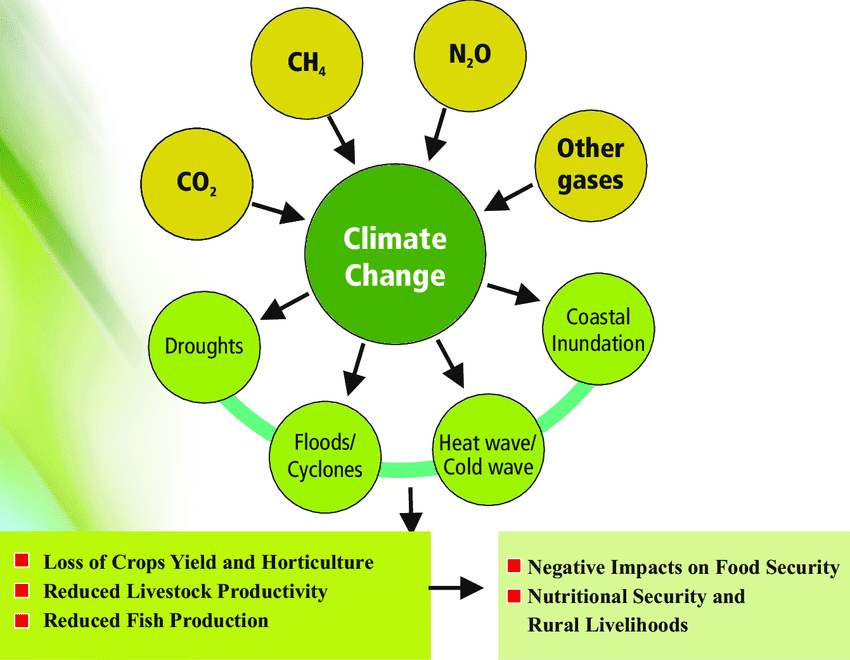The impact of climate change on agriculture in India is profound and multifaceted, posing significant challenges to food security and livelihoods across the nation. Rising temperatures, erratic rainfall patterns, and extreme weather events such as droughts and floods are increasingly disrupting agricultural activities, leading to reduced crop yields and economic losses for farmers. These changes not only threaten the sustainability of agricultural production but also exacerbate existing socio-economic disparities, particularly among smallholder farmers who lack resources and adaptive capacity.
Climate change is expected to decrease kharif maize yields by 18% in 2050 and 23% in 2080. It also impacts crop yields and the nutritional quality of produce, with extreme events like droughts affecting food consumption and farmer livelihoods. Additionally, a 1°C rise in temperature reduces wheat production by 4-5 million tons, mitigated to 1-2 million tons if planting is timely. Rising water temperatures affect fish breeding and harvests, while coral reefs decline starting in 2030. On a positive note, farmers can adopt climate-smart agriculture (CSA) technologies to manage their land, livestock, and biodiversity sustainably. CSA addresses food security and climate change by boosting productivity, enhancing livelihoods and ecosystem resilience, and curbing greenhouse gas emissions. This is the reason why all parts of India are suffering from this huge impact of global warming.
Addressing the impact of climate change on agriculture in India requires a multifaceted approach that combines adaptation and mitigation strategies. Investing in climate-resilient crop varieties, improving water management practices, and promoting sustainable agricultural practices can help build resilience and enhance the adaptive capacity of farmers. Additionally, enhancing access to weather information and agricultural extension services can empower farmers with the knowledge and tools needed to make informed decisions and mitigate the impacts of climate change on their livelihoods.
For more information like this visit our official site Khetikibaat.


